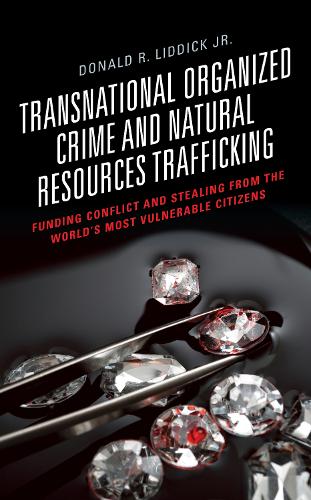
Transnational Organized Crime and Natural Resources Trafficking: Funding Conflict and Stealing from the World's Most Vulnerable Citizens
(Hardback)
Available Formats
Publishing Details
Transnational Organized Crime and Natural Resources Trafficking: Funding Conflict and Stealing from the World's Most Vulnerable Citizens
By (Author) Donald R. Liddick
Bloomsbury Publishing PLC
Lexington Books
31st December 2019
United States
Classifications
Professional and Scholarly
Non Fiction
Environmental law
Energy and natural resources law
Physical Properties
Hardback
228
Width 161mm, Height 229mm, Spine 24mm
513g
Description
This book describes and analyzes conflict commodities, which the author defines as high-value commodities trafficked in by networks of transnational criminals who use the illicitly derived proceeds to finance armed conflict and loot natural resource wealth from national treasuries. Each chapter examines a different commodity or set of commodities that have become the province of transnational organized crime networks: diamonds, ivory, rhino horn, timber, lapis lazuli, jade, rare minerals, gold, and oil receive scholarly analyses across multiple dimensions, including the structure and operation of criminal networks, the social and environmental consequences of the various conflict commodities trades, and the full range of palliative responses. The book provides coverage of all the players involved, from high-ranking government officials to insurgent groups and terrorists. The work also enumerates the array of human rights abuses associated with the traffic in conflict commodities
Reviews
Donald Liddick continues his cutting-edge research and analysis at the intersection of transnational organized crime, corruption, and global security. Here he perceptively identifies the rule of law and personal and economic freedoms as keys to tackling the poverty and injustice resulting from both natural resources trafficking and resource deprivation, as well as the conflicts they breed and ferment. His resulting work sheds light on the generally inflexible and impractical dogma advanced so uncritically as solutions by green criminology, leaving us with a more reasonable, non-binary pathway to assess and pursue harm-reduction solutions to the insidious crimes documented in this work.
--Jeffrey McIllwain, San Diego State UniversityAuthor Bio
Donald R. Liddick Jr. is associate professor at Pennsylvania State University
